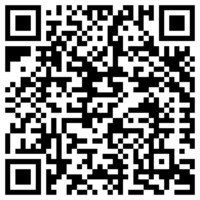
Scan the QR Code to Download the APSF Newsletter Checklist for Authors
The APSF Newsletter is the official journal of the Anesthesia Patient Safety Foundation. It is widely distributed to a variety of anesthesia professionals, perioperative providers, key industry representatives, and risk managers, and is available free of charge in digital format to other interested persons, including members of the public. The content of the Newsletter typically focuses on anesthesia related perioperative patient safety issues.
The Newsletter is published three times a year (February, June, and October). Deadlines for each issue are as follows:
November 1st for the February issue
March 1st for the June issue, and
July 1st for the October issue
However, authors should feel free to submit manuscript at any time for review.
Decisions regarding content and acceptance of submissions for publication are the responsibility of the editors. Some submissions may be published in future issues, even if the deadline is met. At the discretion of the editors, submissions may be considered for publication on our APSF website and social media pages earlier than the deadlines above. Articles (case reports, editorials, letters) that are intended to provide our authorship/readership with more rapid information will be posted on our online website section under “Articles between issues”. These articles could be considered for APSF Newsletter publication at the discretion of the Editor Group and based on their importance and current relevance to perioperative patient safety.
Types of Articles
(1) Review Articles (2) Case Reports (3) Letters to the Editor (4) Rapid Response (5) Editorials
- Review article (invited or unsolicited)
- All submissions should focus on perioperative patient safety issues.
- Articles preferentially will focus on our top 10 perioperative patient safety priorities.
- The articles should be limited to 2,000 words.
- Figures and/or tables are strongly encouraged.
- Please provide no more than 25 references.
- Case Reports
- Case reports should focus on novel perioperative patient safety cases.
- The case report should be limited to 750 words.
- Please provide no more than 10 references for case reports.
- Authors should follow the CARE guidelines and the CARE checklist should be provided as an additional file.
- Letters to the Editor
- A letter to the editor can either comment on a past article or a current perioperative patient safety issue.
- A letter to the editor should be limited to 500 words.
- Please provide no more than 5 references.
- Rapid Response (formerly Dear SIRS “Safety Information Response System”)
- The purpose of this column is to allow expeditious communication of technology-related safety concerns raised by our readers, with input and response from manufacturers and industry representatives.
- Please limit the word count to fewer than 1000 words.
- Please provide no more than 15 references.
- Editorials
- All submissions should focus on perioperative patient safety issues, preferably a recently published article.
- The articles should be limited to 1,500 words.
- Figures and/or tables are welcomed.
- Please provide no more than 20 references.
Commercial products are not advertised or endorsed by the APSF Newsletter. However, upon exclusive consideration from the editors, articles about certain novel and important safety related technological advances may be published. The authors should have no commercial ties to, or financial interest in, the technology or commercial product.
If accepted for publication, copyright for the accepted article is transferred to the APSF. Except for copyright, all other rights such as for patents, procedures, or processes are retained by the author. Permission to reproduce articles, figures, tables, or content from the APSF Newsletter must be obtained from the APSF.
All submissions must be accompanied by the author checklist. Please ensure that all items in the checklist have been completed. Otherwise, your manuscript may be returned.
Statement on Artificial Intelligence
The use of generative artificial intelligence for manuscript creation is discouraged and must be disclosed. Failure to disclose may result in manuscript rejection. Authors take full responsibility for the content of their work.

